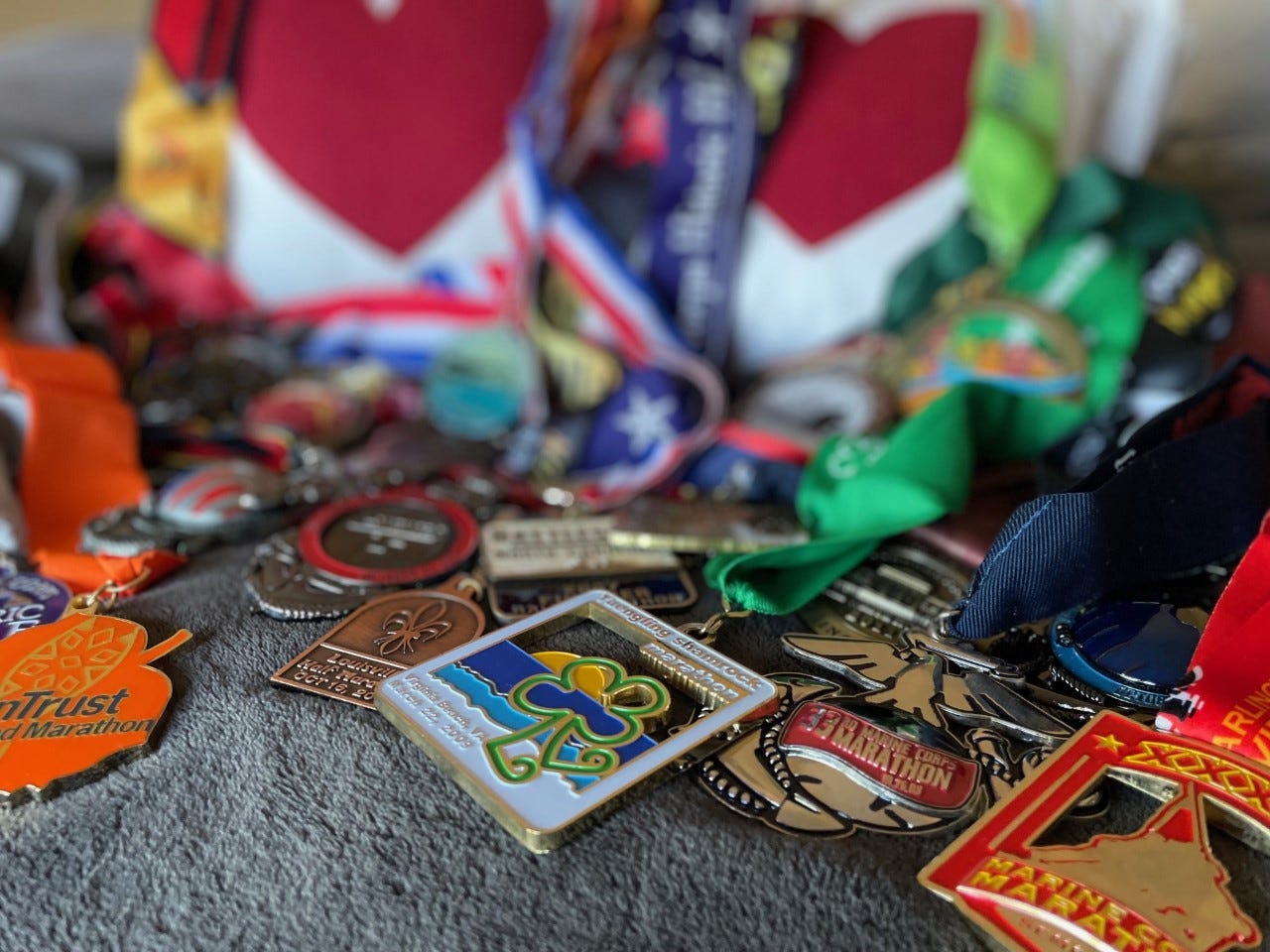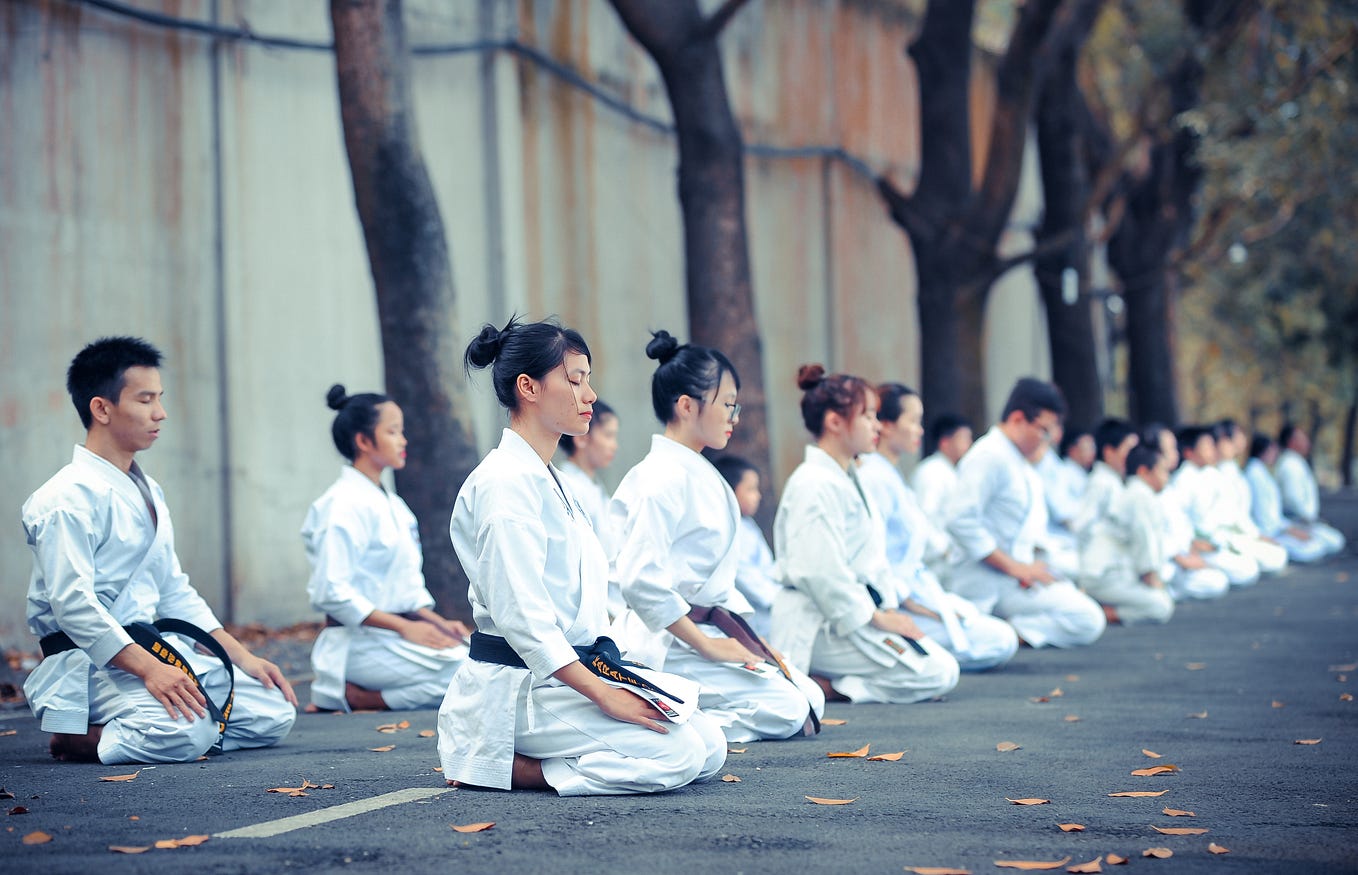How the Beatles Became Really Famous (The True Story You’ve Never Heard)
The Beatles were flying on Pan Am flight 101, on their way for their first US tour, and they were troubled about their chances of success.
Paul McCartney said, “They’ve got their own groups. What are we going to give them that they don’t already have?”
John Lennon reportedly said, “We won’t make it.”
But as they neared New York, the pilot announced something that must have been very reassuring: “Tell the boys there’s a big crowd waiting for them.”
And the plane descended into the madness that became known as Beatlemania:
4,000 screaming fans, some of them injured in the crush, and others who even fainted. 200 reporters. 100 police officers.
Four limousines–one for each Beatle–drove them into New York, where the famous DJ Murray the T narrated their progress over live radio.
They were given a ten-room hotel suite overlooking Central Park.
Then two concerts, two appearances on the Ed Sullivan show–both of which watched by 40 percent of the American population–and back to the UK, where they were met by over 10,000 fans.
And this was just the first 12 days of their worldwide fame.
When their songs took the top five slots of the Billboard top-songs chart in April, 1964, the Beatles suddenly became a worldwide sensation. A British pop band dominating the American music scene? That had never happened before.
And the plane descended
into the madness that
became known as Beatlemania
The Beatles came out of nowhere (at least that’s what it seemed like in the United States). They were revolutionary and thrilling, and everybody was talking about them.
But did they come out of nowhere?
And the telling of this story will lead you to the single most important fact you need to know to be successful and happy in life. (And no, I’m not exaggerating.)
The unknown history of the Beatles
The story begins in July 1957, when John Lennon and Paul McCartney started playing music together as teenagers. But in the two-and-a-half years that followed, Lennon and McCartney, along with various short-time band members, played only 25 times, at places like town halls and pubs. According to Beatles historian Ian Inglis, “they were really just a collection of four or five young lads, four or five teenagers who had vague ambitions about being successful musically but nothing more than that.”
Starting in 1960, they gained a tremendous amount of experience playing in Liverpool and in Hamburg (more on that later), but they were rejected by at least five record labels before getting their record contract with EMI in June, 1962. During 1962 and 1963, they became increasingly popular in Europe. And then came their American debut in early 1964 and the beginning of their worldwide popularity.
To summarize: a slow start, four years of serious work, a few rejections by record labels, and then fame. Right?
Nothing could be further from the truth.
To get the complete picture, you need to know about the time they spent in Hamburg, Germany. It was where the Beatles became the Beatles.
Hamburg: Hard days, hard nights
The Beatles’ first stay in Hamburg was their trial by fire.
When they arrived in Hamburg, on Aug. 17, 1960, they had no idea what was ahead. They first played at the Indra Club, which was located on the Reeperbahn, at the heart of the city’s red-light district. According to George Harrison, it was a rough neighborhood, full of “transvestites and prostitutes and gangsters.”
The room they were given to live in was behind the screen of a seedy cinema near the Indra. Lennon recalled, “We were put in this pigsty. We were living in a toilet, like right next to the ladies’ toilet. We’d go to bed late and be woken up next day by the sound of the cinema show and old German fraus pissing next door.” McCartney said that you could always smell the toilets. Worse, they had to use cold water from the urinals to wash and shave.
If where they lived was awful, where they worked was just as bad. The Indra’s stage was cramped. The club itself was threadbare and trashy; it had formerly been a strip joint. And the pay wasn’t much; each performer was paid £2.50 per day (about $72 in today’s US currency–and try living on that in modern London).
Eight days a week
Their work schedule was grueling, and they never had a day off. The group worked from 8 pm to 2 am on weeknights, from 7 pm to 3 am on Saturdays, and from 5 pm to 1:30 am on Sundays.
When they arrived
in Hamburg, they had
no idea what was ahead
This was how they had to work for the entire three months they were in Hamburg: 46 hours a week, with 31 of those hours onstage, playing music.
And they were working like a dog
They had to play loud to get customers into the club, and they had to keep their attention to keep them buying drinks. (Their desperate on-stage behavior there evolved into the on-stage antics they became known for in the United States.) Their job became even harder when a renter above the club complained to the police about the noise, and the Beatles were forced to play with the volume turned down.
In early October, the Indra’s owner closed the club and transferred the Beatles to another club, the Kaiserkeller, where they had somewhat better lodgings but played the same punishing schedule.
The band members worked to exhaustion–and then they worked some more. According to Lennon, “The waiters, when they’d see the musicians falling over with tiredness or with drink, they’d give you the pill [Preludin, a variant of amphetamine]. You’d take the pill, you’d be talking, you’d sober up, you could work almost endlessly–until the pill wore off, then you’d have to have another.”
This is what their lives were like, until mid-November, when George Harrison was deported for being underage. This brought the Beatles’ stay in Hamburg to an end.
The Beatles had worked for around 600 hours, under terrible conditions. Imagine —for three months, between 6 and 8 hours a day and not a single day off.
Yes they’re gonna be a star
The Beatles’ time in Hamburg paid off.
According to John Lennon, “In Liverpool [before 1960], we just used to do our best numbers, the same ones at every gig. In Hamburg, we would play for eight hours, so we really had to find new ways of playing…. We got better and got more confidence, playing all night long…. We had to try even harder, put our heart and soul into it, to get ourselves over.”
Their work schedule
was grueling, and they
never had a day off
Stuart Sutcliffe, a band member at that time, wrote in a letter, “We have improved a thousand-fold since our arrival and Allan Williams, who is here at the moment, tells us that there is no group in Liverpool to touch us.”
Were Lennon, Sutcliffe, and Williams fooling themselves?
Back in England in late 1960, Chas Newby, temporarily playing with the group, said that he was shocked by how much their singing and playing had improved.
And yet, success was still 3 years away
Hamburg was critical to the Beatles’ success, but their slow rise to stardom had just begun. Starting in 1961, the Beatles still had a lot of hard work and disappointments ahead of them.
Their popularity in the UK grew in 1961 and 1962. In January 1963, they were rejected by Decca with the criticism “Guitar groups are on the way out.”
In August 1963, “She Loves You” became their first hit song.
They left Heathrow Airport on February 7, 1964, to fly to New York City. Two days later, their appearance on the Ed Sullivan Show was watched by approximately 40 percent of the US population.
And that’s the story of how the Beatles suddenly became a worldwide sensation.
BTW you too can be happy and successful — without working 600 hours entertaining drunks! Go here to learn the big lessons of the Beatles’ success.
Notes
The story begins: The facts in this article come from multiple web sources, including here, here, here, here, and here. Almost all of these facts are based on quotations from published books about the Beatles.
first stay in Hamburg: The Beatles went back in 1961, 1962, and 1966.
BONUS: You want to hear the results of years of practice? Listen to this vocals-only recording of “Here Comes the Sun” — amazing!







